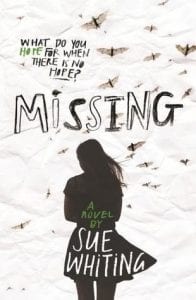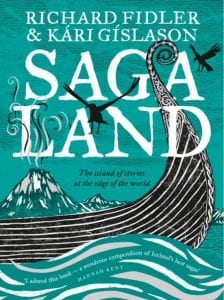 “There are lots of things worse than school.”
“There are lots of things worse than school.”
This comment, made by Charlotte, begins an argument between her and Luke’s best mate, Blake; on a day they decide to skip school. It later becomes something Luke ponders more deeply, as he gets to know Charlotte a little better.
In usual Steven Herrick style, ‘the Bogan Mondrian’ is told in a clear, waste-no-words fashion.
Luke and his friends are relatable characters – teens biding their time at school, but preferring to spend a more casual existence away from school. As regular visitors to the principal’s office for truanting and cheekiness, they are nonetheless likeable.
Luke is still coming to grips with life after his father’s premature death from cancer. Charlotte has recently enrolled in the local public high school he attends, though she is clearly from a wealthy background and could attend a costly private school. Even though they live in contrasting worlds of wealth, their friendship evolves as they work through their own personal issues, and occasionally gain support from each other.
That said, it is not always an easy relationship, with aggression and flareups often arising. Luke is uneasy about Charlotte’s homelife, and Charlotte is not very willing to be open and honest with everyone – under attack and often quite aggressive herself.
Other characters woven into the story provide interesting levels of support for Luke, in the absence of his father. Rodney, a petty local criminal, gives Luke a few pointers/things to think about at times, and later in the story, tools for action. Neighbour, Mr Rosetti, also provides advice and amusing banter each time they cross paths. Even Buster (the local mutt that Luke adopts for his walks) has a important place in grounding Luke’s emotions throughout the story.
For Blue Mountains readers, there will be places and names you may well enjoy recognising. On the other hand, you may have to allow poetic licence to Herrick as he tells his tale – with the cultural divide north and south of the highway a bit irksome, and the efforts of the Mr Pakula, the school principal, (seeking out truants himself) a bit questionable. But still the story must be told.
You will find that there are worse things than school; things sadly that some young people face daily. Herrick’s fictional youth tackle these the best way they can – though not always with glowing success. Lots of food for thought and highly recommended reading.
# Those who wonder about the title and cover design can find information on Mondrian here.
## More importantly, after you have finished ‘the Bogan Mondrian’, you can read here the reasons why Steven Herrick wrote this book.
### Shortlisted for CBCA Older Readers 2019.
 What do you know about dead things? How do they make you feel?
What do you know about dead things? How do they make you feel? Lenny has a younger brother, who after a while isn’t really her little brother any more – since he “has a condition” and won’t stop growing. This becomes a challenge for Lenny, her mother and of course, Davey – especially as he nears school age.
Lenny has a younger brother, who after a while isn’t really her little brother any more – since he “has a condition” and won’t stop growing. This becomes a challenge for Lenny, her mother and of course, Davey – especially as he nears school age. Beck’s life has always been routine – music practice – school – music practice – nothing more – nothing less. No time for friends or other activities – the Maestro wouldn’t allow it.
Beck’s life has always been routine – music practice – school – music practice – nothing more – nothing less. No time for friends or other activities – the Maestro wouldn’t allow it. When we first meet Rob in ‘A Song Only I Can Hear’, he is shy, uncertain of himself, and in the throes of first love. He has a few significant people in his life, but not many friends. And a bully lingers at school.
When we first meet Rob in ‘A Song Only I Can Hear’, he is shy, uncertain of himself, and in the throes of first love. He has a few significant people in his life, but not many friends. And a bully lingers at school.
 What would you do if one of your parents went missing while overseas? Unfortunately, as author Sue Whiting notes over 38,00 people are reported missing in Australia each year – and “roughly 1600 are considered long term missing”.
What would you do if one of your parents went missing while overseas? Unfortunately, as author Sue Whiting notes over 38,00 people are reported missing in Australia each year – and “roughly 1600 are considered long term missing”.
 Catching Teller Crow is an intriguing mystery, told in two voices through poetry and story.
Catching Teller Crow is an intriguing mystery, told in two voices through poetry and story. Planning events these days will involve a playlist – that is, the significant songs that can be used during the event. Special songs for the wedding couple, meaningful songs for a birthday celebration, reminiscent songs for anniversaries. The Spotify generation can relate to this – and plan their playlist.
Planning events these days will involve a playlist – that is, the significant songs that can be used during the event. Special songs for the wedding couple, meaningful songs for a birthday celebration, reminiscent songs for anniversaries. The Spotify generation can relate to this – and plan their playlist. ‘Saga Land’ was not what I was expecting – but then, the collaboration between broadcaster, Richard Fidler, and Kari Gislason, a writer and academic born in Iceland starts with multiple but different needs to investigate Icelandic history. So really, you could expect something unexpected.
‘Saga Land’ was not what I was expecting – but then, the collaboration between broadcaster, Richard Fidler, and Kari Gislason, a writer and academic born in Iceland starts with multiple but different needs to investigate Icelandic history. So really, you could expect something unexpected. Should parents’ dreams be lived through the lives of their children?
Should parents’ dreams be lived through the lives of their children?